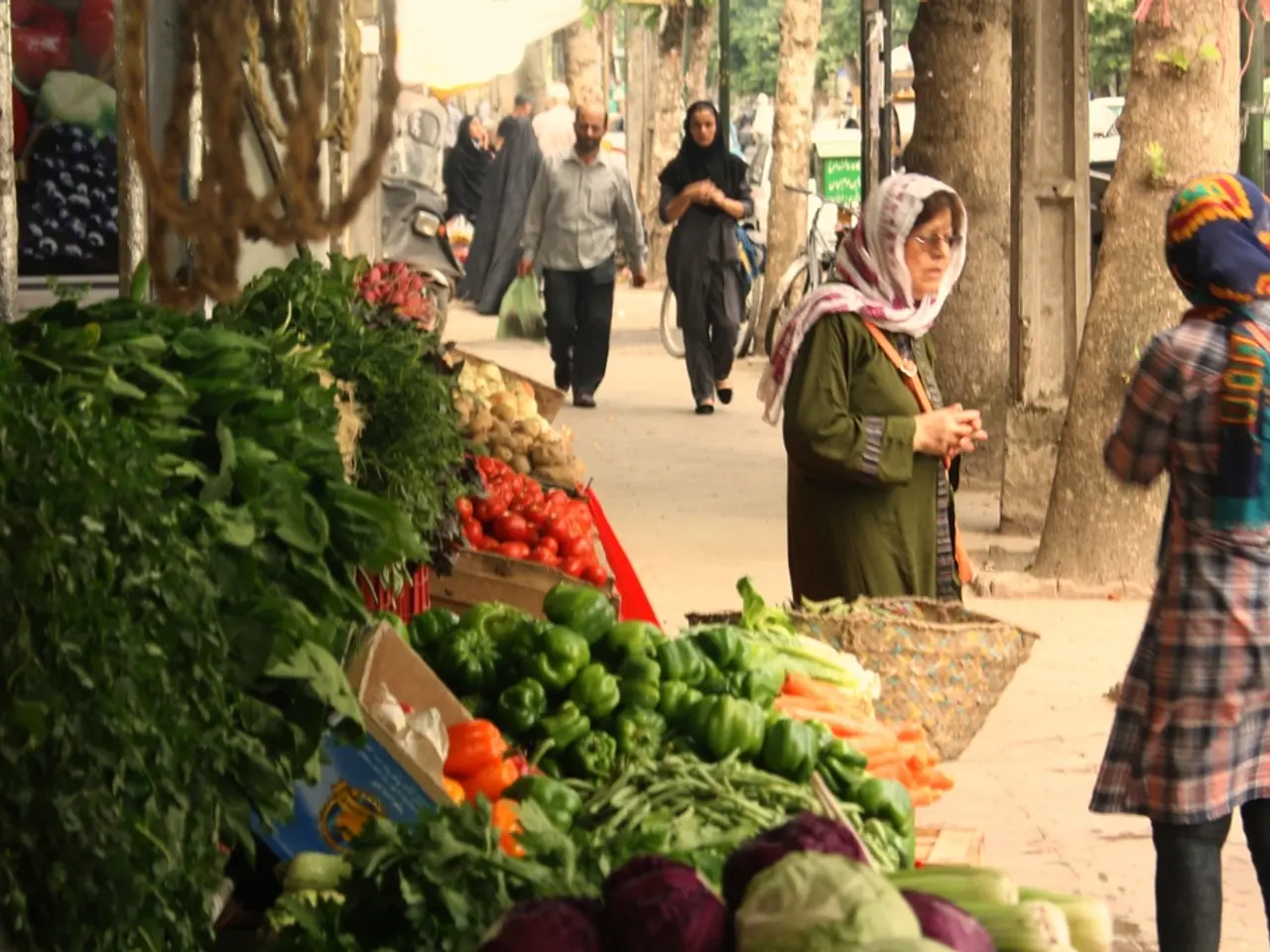Sustainability can harmoniously coexist with emerging markets.
In the realm of global investments, Alexander Mozer's Ökoworld Growing Markets 2.0 fund has made a significant impact since its launch in September 2012. Despite charging high fees of 2.4 percent, the fund has outperformed the MSCI Emerging Markets index by a noteworthy 90 percentage points.
The fund, managed by Mozer, primarily invests in small and medium-sized, fast-growing companies in emerging markets that focus on the domestic market. The sectors of interest include education, communication, renewable energy, water, and new mobility.
One of the key factors that set the Ökoworld Growing Markets 2.0 fund apart is its strict orientation towards ecological, ethical, and social criteria. This is in line with the values of Ökoworld Capital Administration (KAG), founded in 1995, which consistently focuses on ecology and sustainability.
Emerging markets, known for their status as some of the world's fastest-growing economies, are attracting investors due to their potential for growth. However, they often come with higher risks, such as political and social unrest or environmental disasters, particularly in regions with poor Environmental, Social, and Governance (ESG) ratings.
Investors are increasingly focusing on sustainability in emerging markets, as environmental and social standards can be lower compared to developed countries. This approach helps reduce risks by considering sustainability aspects alongside traditional fundamental data.
The current top performers in the ÖkoWorld Growing Markets fund are from Taiwan (17 percent), China (14 percent), South Korea (12 percent), India (12 percent), Japan (8 percent), and the USA (6 percent). Companies such as Nio, a Chinese electric car manufacturer, and Giant Manufacturing, a Taiwanese bicycle manufacturer, are among those currently invested in by Alexander Mozer.
Telenor, a Norway-based company, is another mobile player in the Ökoworld Growing Markets 2.0 portfolio. Telenor is active in India, Eastern Europe, and Asia, offering mobile financial and health solutions, especially in rural areas. The company is also engaged in education to promote media literacy among seniors, children, and youth, as well as generally among people in emerging and developing countries.
Evergreen Marine Corp. (EMC), the largest fund position, is a container shipping company headquartered in Taipei, Taiwan, and one of the world's top five. Evergreen Marine gained worldwide attention when one of its container ships, Ever Given, blocked the Suez Canal in March 2021.
KDDI, a Japanese telecommunications provider, is also included in the Ökoworld Growing Markets 2.0 fund. KDDI offers educational programs for youth and child protection in internet usage and has developed an app for understanding text messages specifically for the blind. The company serves numerous lines, particularly in East Asia, Europe, and the American West Coast.
It's important to note that small and medium-sized enterprises (SMEs) in emerging markets, particularly in sectors such as education, communication, renewable energy, water, and new mobility, generally lag behind larger companies in sustainability performance. However, they play a significant role in overall emissions and sustainability transitions.
According to a World Bank-led survey covering over 40 emerging economies, SMEs significantly lag in ESG practices and green growth compared to larger companies. Larger companies show better ESG integration, which typically correlates with better access to resources and better return on investment (ROI) from sustainable practices.
SMEs, despite their smaller individual environmental footprints, collectively contribute over 60% of the greenhouse gas emissions from enterprises, indicating a strong cumulative impact and opportunity in sustainability transitions.
SMEs in renewable energy sectors across emerging markets such as Kenya and Ghana face severe capital constraints, limiting their ability to scale green technologies and thereby potentially limiting their ROI compared to larger players who have greater financial capacity to invest and innovate.
Recent policy developments in regions like the EU recognize the challenges SMEs face in sustainability reporting and compliance. The introduction of voluntary sustainability reporting standards for SMEs (such as the VSME standard by EFRAG) aims to simplify reporting and improve SMEs' access to finance and value chains, which could improve their sustainability performance and ROI over time.
In summary, while larger companies tend to outperform SMEs in sustainability actions and realize comparatively better ROI due to more resources and stronger governance frameworks, SMEs represent a crucial sector with significant collective environmental impact and growth potential—especially when supported by targeted policy frameworks, capital access, and simplified sustainability reporting. The disparity in performance is often linked to resource availability and market scale rather than sector-specific differences.
[1] World Bank Group. (2019). SME Finance in Developing Countries: The Role of Banks and Financial Institutions. [2] UNEP. (2018). Sustainable Small and Medium-Sized Enterprises: A Guide for Policymakers. [3] European Financial Reporting Advisory Group (EFRAG). (2020). Sustainability Reporting for SMEs – A Practical Guide. [4] World Bank. (2019). Renewable Energy Financing for Small and Medium-Sized Enterprises in Developing Countries. [5] European Commission. (2019). Non-Financial Reporting Directive: Guidance for Small and Medium-Sized Enterprises.
- The Ökoworld Growing Markets 2.0 fund, managed by Alexander Mozer, not only invests in fast-growing companies in emerging markets, but also prioritizes sectors that contribute to environmental and social sustainability, such as education and renewable energy.
- While larger companies in emerging markets often demonstrate better ESG integration and return on investment (ROI) from sustainable practices, small and medium-sized enterprises (SMEs) still play a significant role in overall emissions and sustainability transitions.
- Policymakers are increasingly recognizing the challenges SMEs face in sustainability reporting and compliance. initiatives such as the voluntary sustainability reporting standards for SMEs, like the VSME standard by EFRAG, aim to simplify reporting and improve SMEs’ access to finance and value chains, potentially enhancing their sustainability performance and ROI over time.




